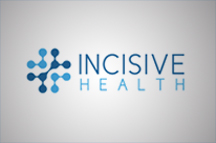Are women really being granted their fundamental right to health and care?
The European Pillar of Social Rights, adopted in November 2017, states that “everyone has the right to timely access to affordable, preventive and curable health care of good quality”, echoing what was previously said on the protection of health in both the Treaty of Lisbon and in the EU Charter of Fundamental Rights. Yet despite this clear commitment from the EU, health remains a national competence and the EU’s role in this policy area is therefore largely limited to supporting Member States and complementing national policies.
And yet the contradiction exists: while the EU was founded on the concepts of solidarity and equality, health inequalities persist across the Union
An interesting and often neglected example of health inequalities is unequal access to reproductive health (such as contraception) both within and across EU Member States. Reproductive health policies differ vastly between Member States, with access being considerably higher in some. This is well-visualised in The Contraception Atlas, a project supported by the European Parliamentary Forum for Sexual and Reproductive Rights (EPF), which tracks government policies on access to contraceptive methods, family planning counselling and the provision of online information on contraception. The 2019 edition of the Atlas shows that France, Belgium and the UK rated highest for their general reimbursement schemes for contraceptives, increasing access for vulnerable women. For instance, in the UK contraceptives are universally free, and 15 types of contraceptives are available from a multitude of health services including GPs, sexual health clinics and young people’s services. In contrast, Poland was rated lowest in the Atlas, with a score of only 31.5% and a very strict contraceptive policy. Overall, the findings conclude that all of the European countries analysed need to do more to improve access to contraceptives.
What are the key benefits of improved access to contraceptives?
Improved access to contraceptives has multiple social and economic benefits. As demonstrated in a case study on Romania, which provides a particularly compelling example of the effects of reproductive laws and policies on women’s health, access to contraception does not reduce fertility rates (as may have been expected) but rather reduces the need for women to resort to abortion, preventing the associated risks to physical and mental health. And of course, access to contraception also improves women’s education and career prospects, as well as their attachment to the labour force.
This issue is particularly marked when looking at marginalised groups, such as homeless women, who often fall between the cracks in national legislation. Homeless women are one of the most vulnerable groups of society, and often do not have access to one of the simplest preventive health methods available to us: contraception. This lack of access, combined with an often disordered life and the risk of using sex in exchange for things such as food, shelter or money, puts them at high risk of unintended pregnancies and their associated risks.
While specific data on access to contraception and other reproductive health facilities for homeless people is lacking, it is clear that financial barriers are one of the most important factors causing these to be inaccessible. For example, as highlighted in the Contraception Atlas’ White Paper Limited Access: Europe’s Contraceptive Deficit, many countries’ reimbursement schemes do not cover long acting reversible contraceptives (LARCs), which are both the most effective contraceptive method and the most cost-effective for health systems in the long-term. LARCs are the most suitable contraception for homeless and marginalised women due to their characteristics but are also the most inaccessible due to their high one-off cost.
Has Europe forgotten about gender equality in its health strategies?
Overall, it is clear that access to reproductive health remains an unmet need across the EU. However, that is not to say that this is a forgotten area in the EU’s gender equality or health strategies. Far from it.
As early as 2001, the European Parliament stated its commitment to improving access to sexual and reproductive health across the EU. In 2008, the Parliamentary Assembly of the Council of Europe (PACE), in its resolution on Access to Safe and Legal Abortion in Europe, recommended to Member States that men and women should “have access to contraception and advice on contraception at a reasonable cost, of a suitable nature for them and chosen by them”. This was recently reiterated in the European Parliament resolution of 13 February 2019 on ‘Experiencing a backlash in women’s rights and gender equality in the EU’, which “calls on the Commission to include the promotion and improvement of sexual and reproductive health and rights in the next Public Health Strategy”. And most recently, in May of this year France’s Renaissance party launched the idea of the Simone Veil Pact in honour of the first president of the European Parliament who battled for abortion rights in France, which seeks to harmonise women’s rights across the EU, including access to contraception and abortion.
All of these initiatives demonstrate a willingness across the European institutions to support reproductive rights. But the key question remains: are all EU citizens really being granted their fundamental right to health and care if they do not have access to an intervention as simple as contraception?
by Shona Cosgrove













